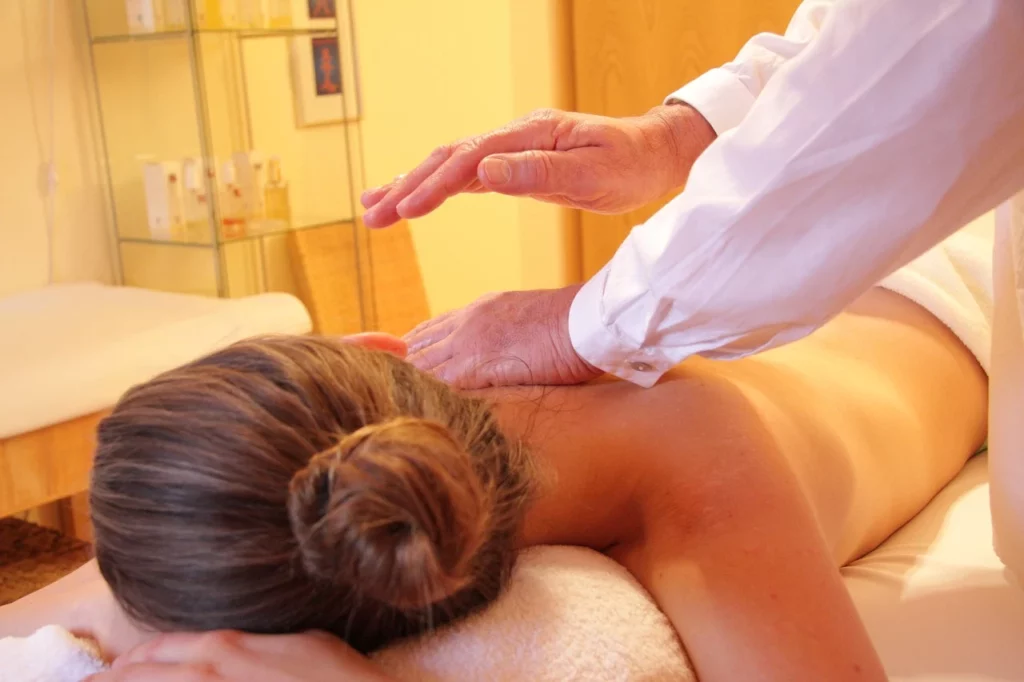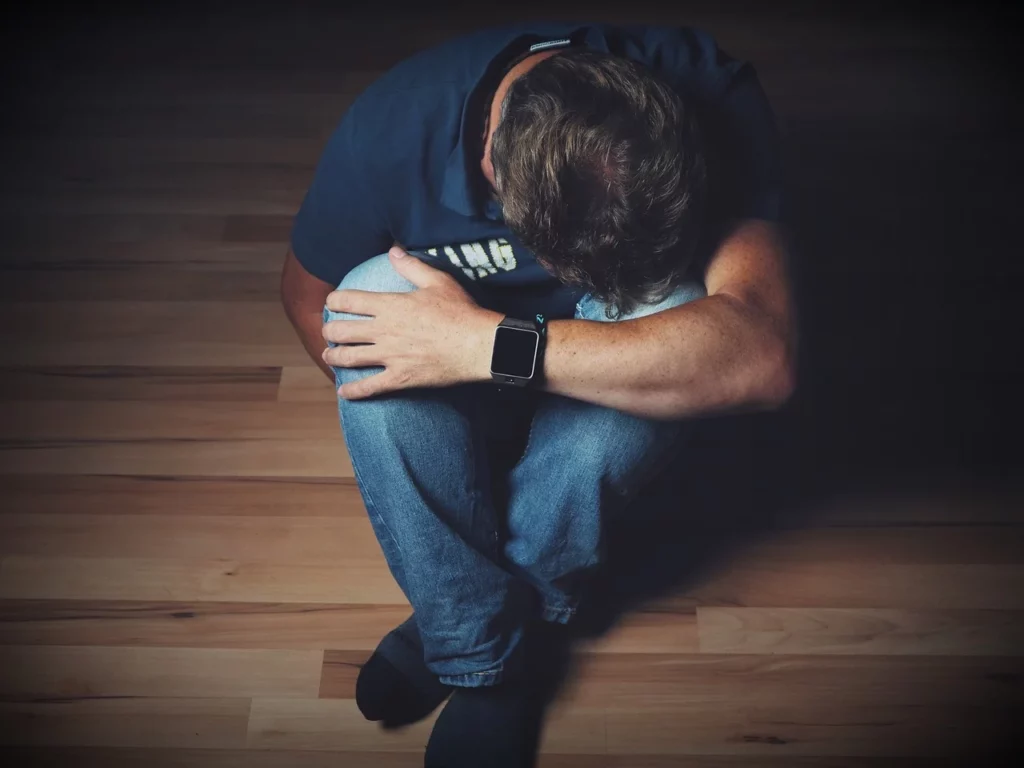Join the journey to holistic care and wholeness and explore the reunification of mind and body for mental wellbeing. Highlands Recovery, near Sydney, Australia is a whole person approach, going beyond symptom management to address the whole person. Our Institute of Behavioural Medicine is an interdisciplinary approach, combining biomedical, psychological and environmental sciences to treat conditions like substance use disorders, trauma and stressor related disorders and burnout.
We use evidence based therapies including Eye Movement Desensitisation and Reprocessing (EMDR), Trauma focused Cognitive Behavioural Therapy, Cognitive Processing Therapy and Prolonged Exposure Therapy. Find out how our 4 phase recovery program, biological components and understanding of the dopamine reward system can be the key to a lifetime of self directed health and long term recovery.
Understanding Holistic Care in Mental Health

When you’re struggling with mental health, it’s easy to get caught up in symptom management, one quick fix after another. But true healing goes beyond just managing surface level symptoms. Holistic care in mental health means you are more than just a list of symptoms; you are a complex being with interconnected parts: mind, body, spirit. These aren’t separate entities but rather facets of your overall well being, each affecting the others in deep ways. Think of it like an ecosystem – mess with one part and the whole system suffers.
At Highlands Recovery, near Sydney, Australia we get this. Our approach to holistic care involves integrating various therapeutic modalities, each carefully chosen to support comprehensive healing and sustainable recovery. This isn’t just about feeling better in the short term; it’s about building long term wellbeing that lets you thrive. In essence we’re not just managing symptoms, we’re nurturing the whole person.
The Institute of Behavioural Medicine Approach

Highlands Recovery is an Institute of Behavioural Medicine. What does that mean? Behavioural medicine is a field that combines biomedical, psychological and environmental science to understand and treat conditions. It’s a departure from the traditional siloed approach to health where the body and mind are treated as separate entities. Behavioural medicine recognises that true health comes from a healthy body, a healthy mind and a healthy environment all working together. This holistic care approach ensures that every aspect of well-being is considered in the healing process.
Our clinical program at Highlands Recovery addresses a range of issues including substance use disorders, trauma and stressor related disorders (such as post-traumatic stress disorder – PTSD), and burnout and chronic stress. We recognise that these problems don’t occur in isolation; they’re often the result of complex interactions between biological vulnerabilities, psychological factors and environmental stressors. That’s why holistic care is at the core of our treatment philosophy.
Our clinical team includes doctors, psychotherapists, exercise physiologists and nutritionists. By bringing all these different expertise together we can create a highly personalised treatment plan tailored to your specific needs and circumstances. We aim to reduce psychological bias through client education and informed intuition so you can take an active role in your own recovery.
The Four Phases of Recovery at Highlands Recovery
At Highlands Recovery we have a 4 stage programme, each stage building upon the previous one to create lasting change. This isn’t a one size fits all approach, it’s a sequential journey that puts your individual progress and needs first.
Stage 1: Stabilisation. The first stage is about calming the autonomic nervous system (ANS) which is often overactive in people who have experienced trauma or addiction. An overactive ANS can leave you feeling anxious, irritable and on edge all the time. We use a combination of biological, psychological and social tools to calm the ANS, these include yoga, personal training, somatic massage, healthy diet, sleep hygiene, supportive social environment and various behavioural tools to manage triggers. Holistic care plays a crucial role here, addressing the mind, body, and spirit to establish balance and foster overall wellness.

Stage 2: Trauma Reprocessing. Once a client has achieved some ANS stability then the real trauma reprocessing work can begin. In this stage of recovery clients will start to “de-couple” the stimulus-response mechanism whereby certain triggers create an excess ANS response. This may include Eye Movement Desensitisation and Reprocessing (EMDR), Trauma-focused Cognitive Behavioural Therapy, Cognitive Processing Therapy, Prolonged Exposure Therapy and possibly Equine Therapy.
Stage 3: Integration. Helping clients to re-integrate back into their normal home and work environment. This is the most dangerous period for relapse back into old behavioural and neurological habits.
We offer ongoing support with weekly individual and group virtual therapy sessions and regular wellbeing check-ins. This can be seen as a gentle “step-down” from the fully therapeutic environment of rehab as we “hand hold” and support a gentle landing back into real life. Holistic care continues here, with a focus on self-care routines and mindful living to enhance personal resilience and long-term success.

Stage 4: Consolidation. In this stage of recovery which should be lifelong the client is entirely self-reliant. Whilst there will still be “triggers” in life the client can self-regulate the ANS, manage and minimise triggers and live a life that’s free (or at least mostly free) of the effects of trauma. We understand that recovery from trauma and all its associated behavioural issues is a lifelong journey. Holistic care empowers clients to maintain their wellbeing and spiritual balance as they move forward, with practices that support emotional, physical, and mental health for a sustainable recovery.
How Trauma Affects the Brain and Recovery

Trauma in all its forms can leave a deep scar on the brain and can change its structure and function. Trauma can particularly wreak havoc on the Autonomic Nervous System (ANS) which is the body’s control centre for involuntary functions like heart rate, breathing and stress response. When the ANS is chronically activated it can lead to a cascade of distressing symptoms including excessive anxiety, intrusive flashbacks, debilitating depression and overwhelming cravings for substances or behaviours that provide temporary relief.
Imagine the ANS as an alarm system. In a healthy person the alarm only sounds when there is a real threat. But in someone who has experienced trauma the alarm system becomes very sensitive and sounds off at the slightest provocation. This state of hyperarousal is exhausting and leaves you feeling on edge, irritable and disconnected from the present moment. Trauma reprocessing therapies like Eye Movement Desensitisation and Reprocessing (EMDR) and Cognitive Processing Therapy (CPT) offer hope. These evidence-based approaches work by “decoupling” the stimulus response mechanism allowing the brain to process traumatic memories and reduce the intensity of emotional and physical responses. In essence they help retrain the alarm system so it no longer responds to harmless stimuli.
And holistic care supports this by looking at the whole person – mind, body and spirit. Mindfulness, yoga and meditation calm the ANS, connect us to the present moment and relax. Nutritional support and gentle movement nourish the body and spiritual and emotional support guide us towards long term recovery, resilience and wellbeing.
The Role of Biological Components in Holistic Mental Health
While psychological interventions are important, we must not forget the biological aspects of mental health and recovery. Our bodies and minds are connected and neglecting one can undermine the other. At Highlands Recovery we believe in integrating biological elements into our holistic approach to support overall wellbeing and accelerate the healing process.

Exercise in all its forms can be a powerful tool to calm the nervous system, reduce stress and relax. Yoga with its focus on mindful movement and breathwork is especially good for people who have had trauma. Meditation can help cultivate inner peace and reduce anxiety. Personal training and somatic massage can release tension, increase body awareness and connect to the physical body. Sauna and ice baths can calm the nervous system, reduce stress and relax. A healthy diet and good sleep hygiene are also important for stabilising the ANS and supporting cognitive function.
Holistic care goes beyond physical practises, emotional healing, mental healing and spiritual healing. Mindfulness, deep breathing and energy work can bring peace and balance. This sets the foundation to get back in touch with yourself and find wholeness in recovery.
Understanding Dopamine and the Reward System
Dopamine, the “pleasure chemical” has become the central part of our understanding of addiction and the reward process. For years we thought dopamine was solely responsible for the feelings of euphoria after a rewarding experience. But recent research has shown a more complex picture. Dopamine is released not only after a rewarding experience but also before it [Reference: Schultz, W. (2016). Neuronal Reward and Decision Signals: From Theories to Data. Physiological Reviews, 96(1), 25-85].
This anticipation can drive addictive behaviours as the brain wants to replicate the dopamine rush. Understanding the interplay of dopamine with behaviour is an essential element within holistic care and promoting lasting well-being. Exploring the “four M’s” – memory, motivation, movement and meaning – can help you identify and do activities that provide healthy rewards.
Activities that create positive memories, motivate you to overcome obstacles, get your body moving purposefully and hold personal meaning are more likely to stimulate the dopamine reward system in a positive and sustainable way. This is important because if you’ve been doing something that overuses this dopamine reward circuit then the dopamine receptors will get downregulated. So you’ll have to stop that activity and find another activity that uses this pathway too.
Highlands Private: Personalised One-on-One Care

If you’re looking for a haven of discretion and a tailored recovery path, then Highlands Private is the only option: one to one care in the comfort of your own home. We understand some people require a level of privacy and individual attention that just isn’t possible in a more traditional setting. Whether it’s due to professional demands, personal circumstances or simply a need for greater anonymity, Highlands Private offers a bespoke service that’s designed around you, , recognising that true well-being extends beyond conventional treatments, embodying the principles of holistic care.
Imagine a treatment environment where every need is met, where your recovery journey is guided by a team of world class experts solely focused on your well being. At Highlands Private that’s what it’s like. A full team of specialists will be assembled to address your specific needs, so you receive personal attention and support every step of the way. This reflects our dedication to holistic care, ensuring that all aspects of your well-being are addressed.
Admission to Highlands Recovery, including Highlands Private, is always subject to clinical assessment and while we try to help as many people as possible, we must acknowledge we may not be able to treat all conditions. This means we can deliver the best possible care. We are committed to excellence and world class private, confidential care.
The Importance of Aftercare for Long-Term Recovery
Recovery doesn’t end when you leave the treatment centre; in many ways it’s only just beginning. Aftercare is a vital but often overlooked part of long term success, providing the ongoing support and guidance you need to navigate daily life and prevent relapse. Think of it as the scaffolding that helps you solidify your progress and build a stronger foundation for the future. At Highlands Recovery we recognise the importance of aftercare in long term recovery, that’s why we offer both basic and intensive aftercare programs, both a minimum of 6-12 months, designed to sustain the principles of holistic care established during your stay.

These programs are designed to help you transition back into your home and work environments, with ongoing support and guidance as you adjust to your new normal. Weekly individual and peer to peer group therapy sessions (led by professionals), and regular wellbeing check ins, provide opportunities to process challenges, reinforce coping strategies and stay connected to a supportive community. The integration phase helps the client with real everyday stressors of life, and to implement the tools and approaches learnt in rehab effectively, ensuring a seamless continuation of your holistic care journey.
What Lasting Recovery Means Through Integrative Approaches to Mental Health
At Highlands Institute of Behavioural Medicine our mission goes way beyond just alleviating symptoms or achieving short term sobriety. We want to help you build a recovery that grows with you, changes with you and lasts a lifetime. This means a holistic approach that gets to the root causes of addiction and mental health challenges, not just the symptoms. This means a holistic care approach that gets to the root causes of addiction and mental health challenges, not just the symptoms, encompassing mind, body, and spirit.

We believe in lasting recovery, providing the tools and support for you to live a full life free from the effects of trauma and addiction. We have a four phase program, starting with stabilisation to calm the autonomic nervous system (ANS) and ending with consolidation so you are self reliant. By using behavioural medicine we will use an interdisciplinary field of clinical care that combines biomedical, psychological and environmental science knowledge and techniques to understand health and illness and apply that knowledge and those techniques to prevention, diagnosis, treatment and rehabilitation of many disorders and illnesses. This approach aligns with the tenets of holistic care, emphasising the interconnectedness of all factors influencing well-being
Conclusion
Understanding trauma, brain and reward system is key to proper mental health care. Holistic and integrative approaches go beyond symptom management and address the whole person – mind, body, spirit. By integrating the principles of holistic care, we can see that integrative approaches go beyond symptom management and address the whole person – mind, body, spirit. Stabilise the autonomic nervous system, reprocess trauma, and healthy reward mechanisms and recovery is possible. Highlands Recovery offers a total solution through our Institute of Behavioural Medicine, world class practitioners and four phase program. We offer private and personal care to empower individuals to achieve wellness.
FAQ
What makes Highlands Recovery’s approach holistic?
Highlands Recovery takes a whole approach. As an institute of behavioural medicine we see mental health as the intersection of biological, psychological and social health. So our program combines therapies with diet, exercise and a supportive environment to address the root causes not just the symptoms for long term well being.
How does Highlands Recovery deal with trauma?
Trauma reprocessing is a key part of our program. We stabilise the autonomic nervous system (ANS) and then use therapies like EMDR, Trauma focused Cognitive Behavioural Therapy, Cognitive Processing Therapy and Prolonged Exposure Therapy to decouple the stimulus response mechanism and heal the associated distress, all guided by our clinical team.
What is involved in aftercare?
Aftercare provides support during the critical integration phase through weekly individual and professional led group virtual therapy sessions and regular wellbeing check ins. This “step down” from the fully therapeutic rehab environment allows clients to apply the tools they have learned to real life stressors, build self reliance and healthy neural pathways.
Can clients stay at Highlands Recovery for as long as they want?
Yes, clients can stay for as long as they want; however our basic and intensive aftercare programs have a minimum of 6-12 months. We have a maximum of 10 clients at any one time and this means the staff client ratio is 1-1. 24/7 support is available.
Is Highlands Recovery a medical facility?
Highlands Recovery is an Institute of Behavioural Medicine. We don’t offer pharmacology or medication but we combine biomedical, psychological and environmental science knowledge. Our approach uses multi disciplinary teams that address substance use, trauma and stress related disorders through holistic evidence based methods.
References
PubMed. (n.d.). The role of stress in addiction. Retrieved from https://pubmed.ncbi.nlm.nih.gov/14641897/
APA PsycNet. (n.d.). Cognitive and behavioral treatments for substance abuse. Retrieved from https://psycnet.apa.org/record/1983-21021-001
PubMed Central (PMC). (n.d.). The neurobiology of addiction: A review. Retrieved from https://pmc.ncbi.nlm.nih.gov/articles/PMC6005758/
APA PsycNet. (n.d.). Psychological factors in substance dependence. Retrieved from https://psycnet.apa.org/record/1990-06971-001
National Center for PTSD. (n.d.). Cognitive Processing Therapy for PTSD. Retrieved from https://www.ptsd.va.gov/professional/treat/txessentials/cpt_for_ptsd_pro.asp
Wiley Online Library. (n.d.). Neurophysiology of addiction and recovery. Retrieved from https://onlinelibrary.wiley.com/doi/abs/10.1002/cphy.c110061
Physiology Journal. (n.d.). Neurobiological mechanisms of addiction. Retrieved from https://journals.physiology.org/doi/full/10.1152/physrev.00023.2014
PubMed Central (PMC). (n.d.). Stress and substance use disorders. Retrieved from https://pmc.ncbi.nlm.nih.gov/articles/PMC2705197/
PubMed Central (PMC). (n.d.). The impact of trauma on addiction recovery. Retrieved from https://pmc.ncbi.nlm.nih.gov/articles/PMC3195405/





















































